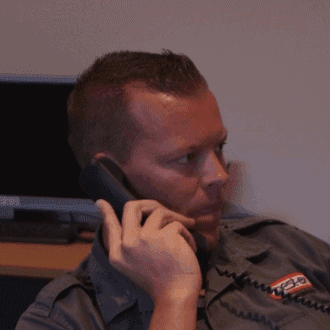
Got a Pest Problem? Call Us Today →
Cockroaches are widely known as one of the most resilient and common household pests in Australia. With their nocturnal habits and ability to thrive in the dirtiest environments, these unwelcome invaders are often associated with unsanitary conditions. But one question that frequently comes up is: Do cockroaches bite humans? If you’re concerned about the presence of cockroaches in your home, it’s important to understand the potential risks, including bites, the symptoms that follow, and the best ways to treat them.
In this article, we will dive deep into the truth behind cockroach bites, the signs of infestation, the symptoms you might experience after a bite, and the most effective treatments. Whether you’re trying to figure out how to handle a bite or prevent a cockroach infestation, this guide has you covered.
Yes, Cockroaches Can Bite.
However, it’s important to note that this behaviour is not common. Cockroaches primarily scavenge for decaying food and organic material, not human flesh. They are not naturally inclined to bite humans unless under certain conditions, such as food scarcity or if they feel threatened. Cockroaches are opportunistic feeders and may resort to biting as a last-ditch effort when there are no other food sources available.
Cockroaches are nocturnal, meaning they are active at night when humans are asleep. Therefore, most bites typically occur while you are resting, especially on exposed areas such as your hands, feet, or face. But, biting isn’t their first choice; they prefer hidden spaces, trash, food crumbs, and decaying organic matter to sustain themselves.
Cockroaches bite for several reasons. They are primarily scavengers, and their need for food and moisture drives their actions. Here are some of the common reasons why cockroaches may bite:
The first step in preventing cockroach bites is to know the signs of a cockroach infestation. Early detection is crucial in preventing a larger infestation that could lead to bites and other health risks.
Common Signs of a Cockroach Infestation
Although rare, if a cockroach does bite, it’s important to understand the symptoms and reactions that can result from the bite.
Common Symptoms of Cockroach Bites
While cockroach bites are generally not life-threatening, they still require prompt attention to reduce irritation and prevent infection.
1. Clean the Bite Area
The first thing to do if you’ve been bitten is to clean the bite area thoroughly with soap and water. This helps to prevent any bacteria or germs from entering the skin.
2. Apply Antiseptic
After cleaning the bite, apply an antiseptic ointment or cream (such as hydrogen peroxide) to help prevent infection. Over-the-counter remedies, like hydrocortisone cream, can also reduce redness and swelling.
3. Cold Compress
To reduce swelling, apply a cold compress or ice pack wrapped in a cloth to the bite area. Leave it on for 10-15 minutes to soothe the skin and alleviate discomfort.
4. Use Anti-Itch Creams
If the bite itches, you can use over-the-counter anti-itch creams or calamine lotion. These products can relieve itching and provide comfort while the bite heals.
5. Monitor for Infection
Keep an eye on the bite to ensure it doesn’t become infected. If you notice increasing redness, swelling, or pus at the site, seek medical attention promptly.
6. Allergic Reactions
If the bite leads to an allergic reaction (such as difficulty breathing, severe swelling, or hives), it is important to seek immediate medical help. In the meantime, antihistamines may help alleviate symptoms. For more information on managing allergic reactions to insect bites, you can visit ASCIA, the Australian Society of Clinical Immunology and Allergy.
The best way to prevent cockroach bites is to eliminate the underlying cause – a cockroach infestation. Here are some effective prevention methods:
1. Maintain Cleanliness
Cockroaches are attracted to food crumbs, grease, and garbage. To keep cockroaches away, clean all areas of your home, especially the kitchen, regularly. Make sure to wipe down counters and floors after meals and store food in sealed containers.
2. Seal Entry Points
Cockroaches can enter your home through even the smallest cracks and gaps. Use caulk to seal any cracks or holes around windows, doors, or walls. Install door sweeps to prevent them from entering through gaps under doors.
3. Reduce Moisture
Cockroaches are attracted to moisture. Fix any leaky faucets, pipes, or drains. Avoid leaving water standing in sinks, bathtubs, or under refrigerators.
4. Use Traps and Baits
Cockroach traps and bait stations are effective ways to capture and reduce the population. Place them in common cockroach hotspots such as under sinks, behind appliances, and in dark corners.
5. Call Professional Pest Control
If you have a persistent infestation or can’t get rid of cockroaches on your own, call in a professional Cockroach control service. Experts can assess the situation and use the most effective methods to eliminate the problem.
While cockroach bites are not common, they can happen under certain circumstances. If bitten, it is crucial to treat the bite properly to reduce irritation and prevent infection. The best course of action is to prevent cockroach infestations altogether by maintaining cleanliness, sealing entry points, and addressing moisture problems. If you are dealing with a heavy infestation, professional pest control is the most effective way to handle the issue.
Concerned about cockroach bites or an infestation? Don’t wait! Contact Pest Ex for expert pest control solutions. Our team will help you eliminate cockroaches and prevent future infestations.







